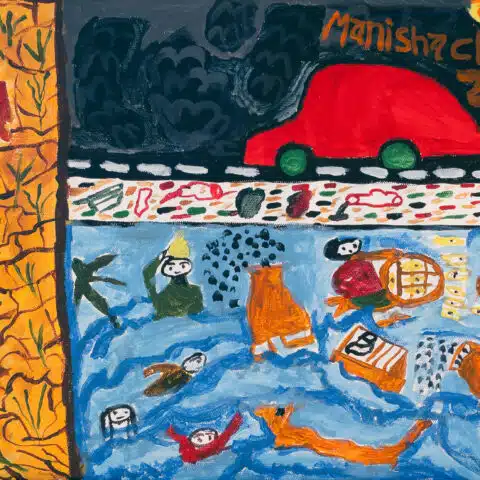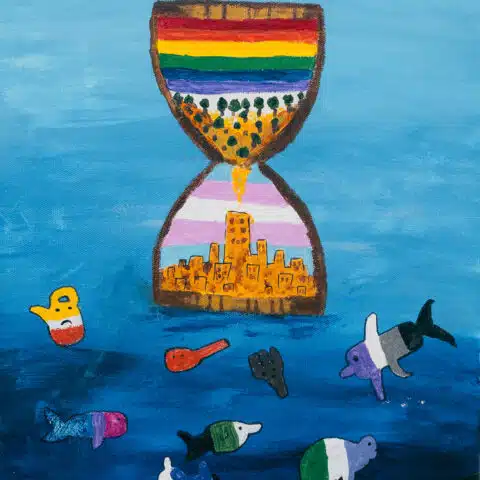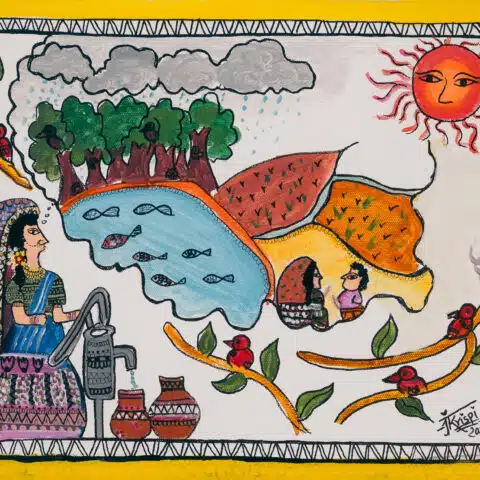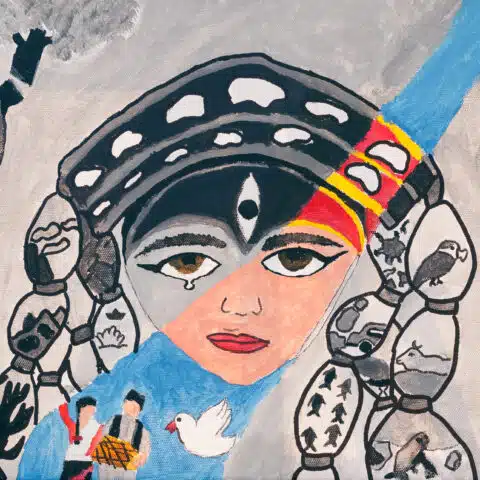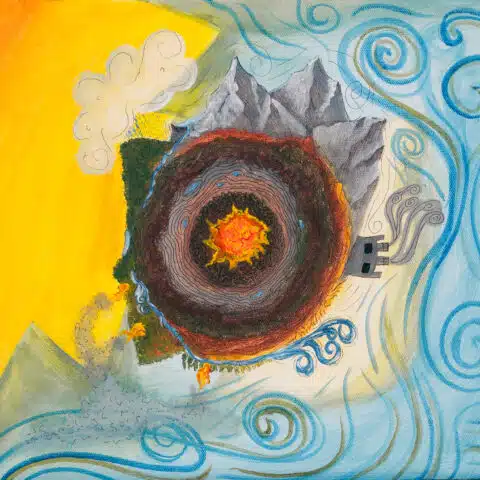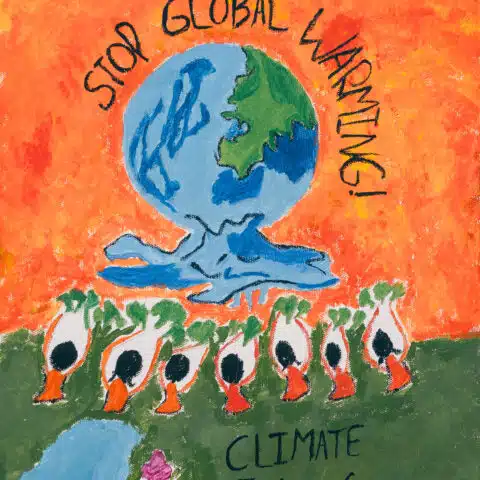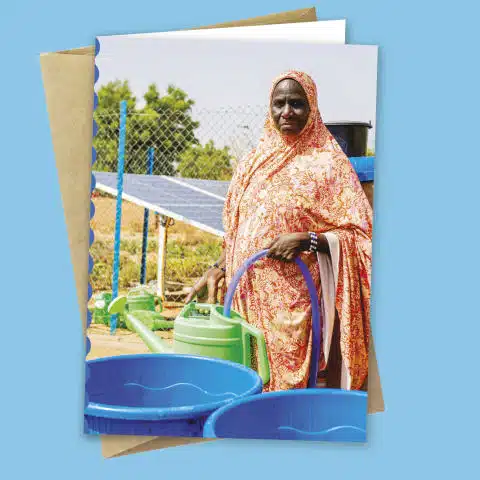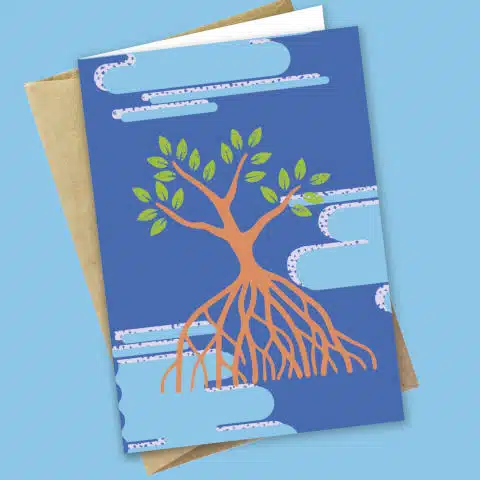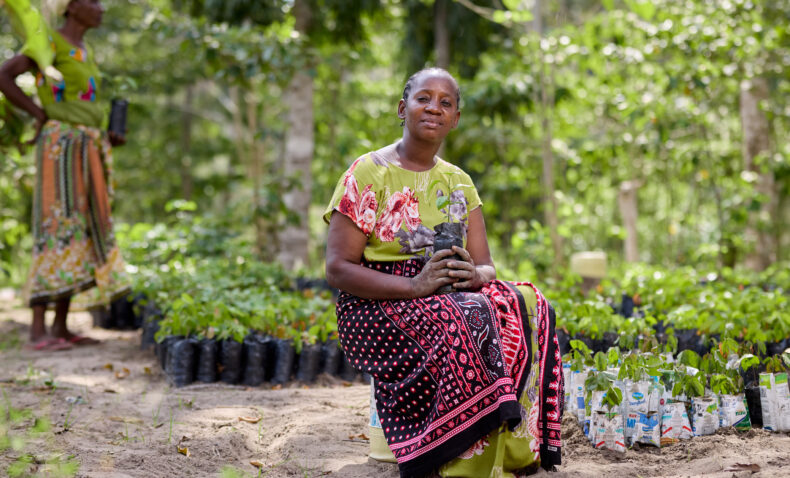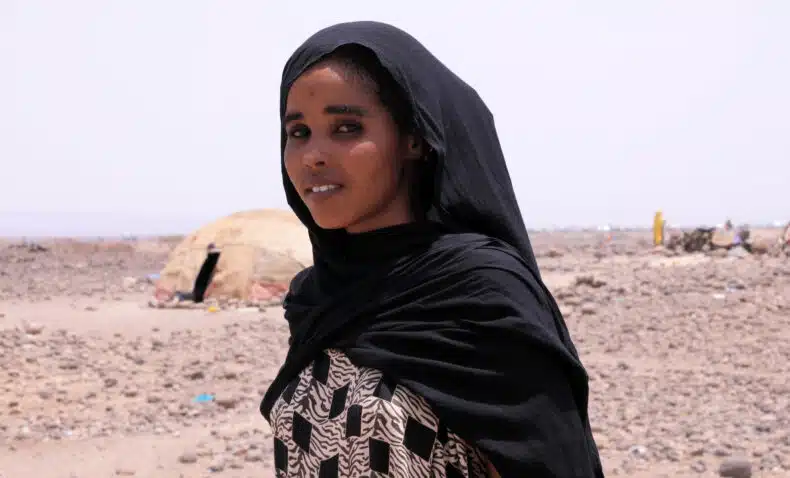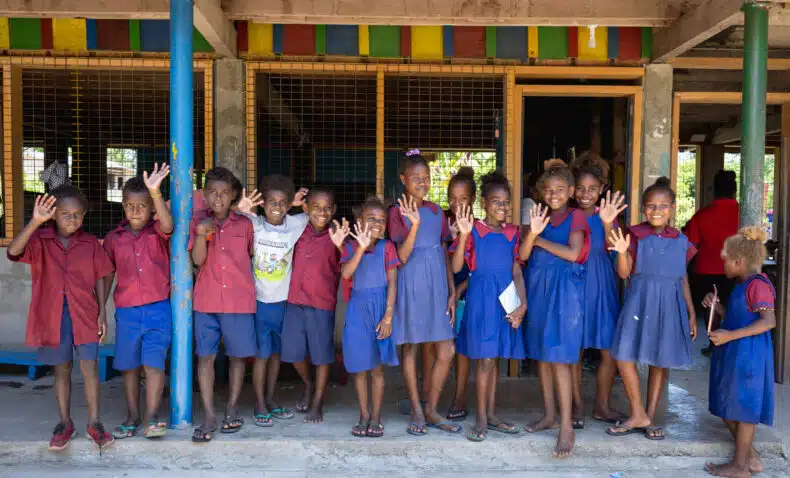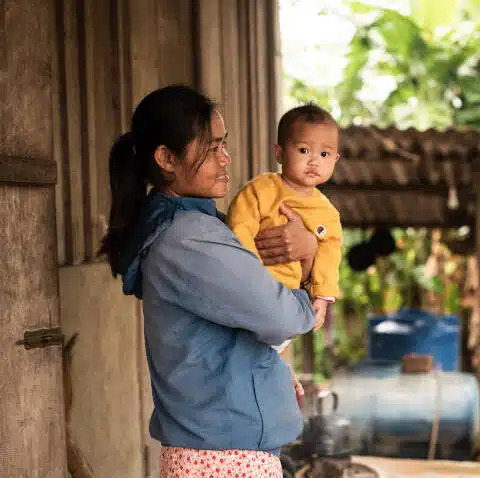How we’re working with communities to help build climate resilience
Plan International works across south-east Asia and the Pacific to help communities adapt and build resilience to climate change, and make sure that children, women, and marginalised groups are involved in shaping the design of our climate projects.
These projects include educating children and supporting them to have a nutritious diet through the planting of vegetable gardens at school using climate-resilient seeds, and mangrove or tree-planting to protect coasts from floods and storms. We’re also working with communities to improve farming practices and to prepare for and to respond to disasters. We reach children and adults through games, school-curriculum and community outreach.
Climate change magnifies gender inequality. That’s why climate action must include girls.
Educating girls is one of the most effective, and most overlooked, ways to combat climate change. In fact, for every year a girl stays in school, her country’s climate resilience measurably improves.
But unfortunately, climate change magnifies the inequalities girls and women already suffer, such as their unequal access to health, sexual reproductive health and rights, education, participation and protection.
In times of crisis, girls are the first to drop out of school to help their families earn money, tend to domestic duties or look after relatives, and they face an increased risk of exploitation, abuse, and child marriage.
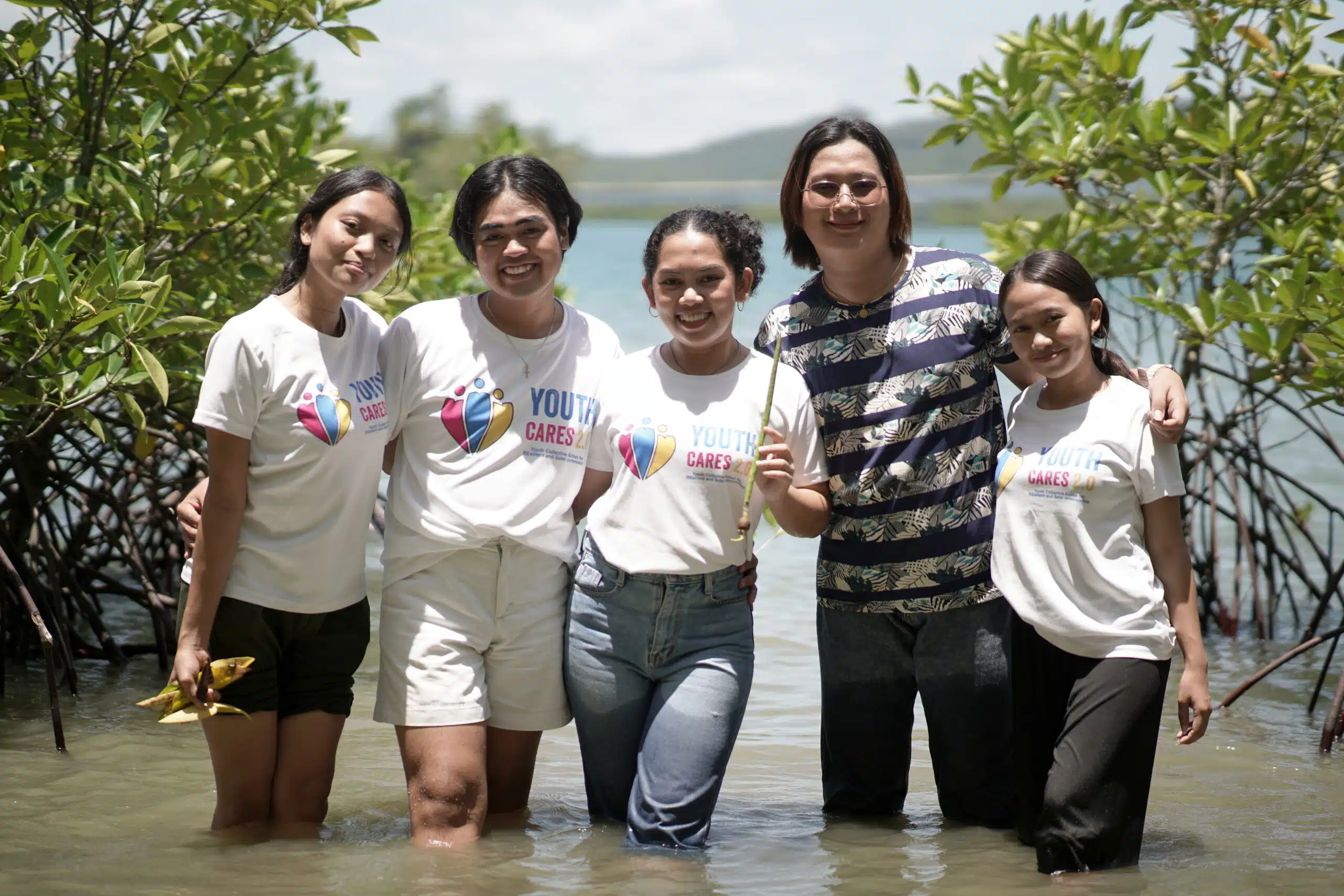
Photo: Angelica (centre) and her friends plant mangrove seedlings. © Plan International
Help create change for girls
Climate action and advocacy
Plan is working alongside girls and young women and with our partners to advocate for policies, laws, and budget to support action on climate change that is science-based, equitable, and informs the principles of gender and intergenerational justice.
In 2024, Plan Australia’s Youth Activists developed and delivered an influencing campaign to amplify the voices of Pasifika girls, who are on the front lines of the climate crisis. This included taking their message directly to leaders at the United Nations Conference of the Parties (COP29), in Baku, Azerbaijan.
In Baku, two of Plan’s Youth Activists met with key decision makers to share the Pacific Girls in a Changing Climate report. They worked with youth from around the world to monitor and provide input to the negotiations between countries, elevating equity, gender, and intergenerational justice principles to decision makers.
Pacific Girls in a Changing Climate was a feminist participatory action research project, conducted between 2021 and 2024. It was initiated by Plan International Australia in partnership with Kiribati Climate Action Network (KiriCAN), Edith Cowan University’s Strategic Research Centre for People, Place and Planet, and the Australian National University.
Photo: Young woman celebrates International Women’s Day in Suva, Fiji. © Vijesh Datt / Unsplashl
Make sure that Australian decision makers hear the voices of Pacific girls
Using art as a powerful tool for change
Art is a powerful tool for activism that allows artists to express their opinions and advocate for social and political change.
In Nepal, one of the most vulnerable countries in the world to climate change, 20 young activists worked together to create a vibrant exhibition with the aim of raising awareness about the adverse effects of the climate crisis and the need to take action to save our planet before it’s too late.
Girls are the first to drop out of school, becoming pregnant, or marrying early when their families and communities are affected by crises. Girls, women, and young people must be given a bigger say in climate policy, so they can help shape the world around them.- Swastika, 20
These paintings took centre stage at the launch of our report, For Our Futures: Youth Voices on Climate Justice and Education which sheds light on the profound impact of the climate crisis on access to education girls and young women in three countries across the Asia Pacific region. Plan Australia co-led the report alongside Plan Indonesia and Plan Nepal. This report, which was co-designed and led by 30 youth activists, allowed youth activists to directly engage with policymakers and demand greater youth representation in global climate discussions.
As a result of these efforts, the Australian Government advocated for stronger youth representation in the governing structure and the design of the Global Fund for responding to Loss and Damage at COP28. Plan also contributed to the establishment of the Loss and Damage fund at COP28, ensuring that young people’s voices were central to international climate negotiations.
How climate change is impacting girls:
- As water and firewood become less accessible, girls spend more and more time collecting these essentials for their families, putting them at risk of violence and increasing the likelihood of them missing out on school.
- Girls’ education is often the first thing families sacrifice when financial resources are in short supply
- Girls are at greater risk of child marriage when their families face economic hardship, leaving millions of girls at risk of sexual and physical abuse, early pregnancy, and maternal death.
- For girls and young women forced to leave their homes – because of a lack of natural resources or access to the income they need to survive – there are multiple challenges to face, including a much higher risk of exploitation, as well as the loss of their education, community support, and livelihoods.
Plan International Australia engaged KPMG to conduct a review of the current evidence regarding Non-Economic Loss and Damage experienced by young women, girls, and gender-diverse people in the Pacific Islands. Read the full report on Mitigating Climate Impact on the Pacific.
Photo: Samira, 14 at her school in Zambia’s Central Province. © Plan International
While climate change exacerbates gender inequality and is on track to reverse crucial gains, climate action can be a pathway to greater equality and improving the rights of girls, if their needs and voices are included. We know that promoting girls’ leadership, and their political empowerment, supports them in accessing their rights, in gaining knowledge and skills, and influencing important decisions around climate change.
Studies also show that female leaders are incredibly effective in conservation and protection efforts, and are more likely to pursue more sustainable futures for their communities.
Want to learn more about our research?
Our commitment to climate action
We remain committed to helping girls and young women face the challenges of climate change and ensure that girls are at the heart of efforts to create a safer and more sustainable future.
Plan International carefully chooses partners who share our values and use funding for projects that benefit girls, focusing on climate resilience, education, health, and equality.
Your support will allow us to continue our projects through south-east Asia and the Pacific, teaching climate-smart farming, providing clean energy, and advocating for gender-responsive climate policies.
The fight to stop global warming isn’t over.

